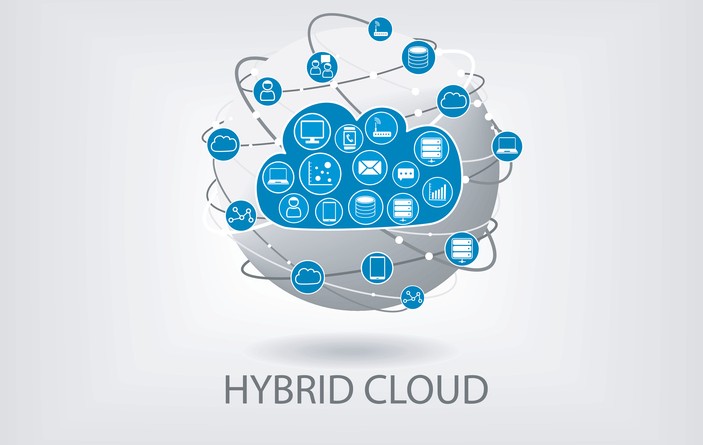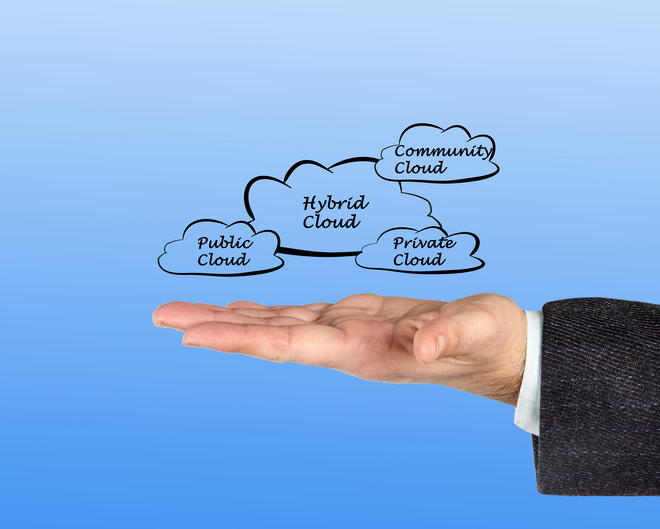What is Hybrid Cloud Computing?
There are three forms of hybrid cloud computing:
- Infrastructure-as-a-Service (IaaS)
- Platform-as-as-Service (PaaS) and
- Software-as-a-Service (SaaS)
Hybrid cloud computing is a new and more affordable way of storing and using data. Before hybrid cloud computing, individuals and companies had to use computing services that required physical storage space and various software. Along with this came high rates, which along with paying technicians who handled all of the software and technology became super expensive.
Benefits of Hybrid Cloud Computing for Small Businesses
Owning a business can get pretty expensive, and when you have a small business, the budget is even tighter. When it comes to obtaining hosting for your website, you want the best service for the best price. Unlike most hosting companies, cloud services are more of an on-demand type business. Most allow you to pay by the minute or hour, so you’re able to use as much or as little as you desire without having to worry about large bills for the months of less or non-use – you pay as you go. All you need is a computer and access to the internet; the provider manages everything for you.
With hybrid cloud computing, you won’t have to worry about upgrades or installing any software for that matter. Before, upgrades could cause computer systems to crash because of the lack of compatibility with older software still being used. This new form of computing allows more individuals and companies to use the service because of the easy plug-and-go abilities. Just like with an internet ethernet plug, you simply plug into the cloud network, and you’re good to go. Then, since hundreds of technicians aren’t needed to run the service, low rates are available. All you have to do is sign-up for the subscription and customize your computing – its really that easy.
Business storage clouds are quickly becoming the premier method to store important business data. But is it safe? Is it possible to rely on some firm potentially in a completely different part of the world with your company’s confidential and personal information? Do you know the challenges of cloud computing, and how will you offset them?
Dangers of Using a Business Storage Cloud
The first danger to look at is being cut off from your computing resources simply by some miscommunication involving you and them. But that is somewhat improbable, actually. The online cloud can route files around damaged transmission lines, and failed systems, as well as other hurdles. The online world is self-healing, in contrast to the desktop personal computer.
Should your hard drive controller abruptly cease to function, do you have a spare hard drive in the closet you could install speedily? Don’t get upset if your cloud-storage supplier goes offline. Guess how long it might take you to acquire, along with installing, a brand new drive controller. Half a day, at least.
Information theft is often a second and more considerable threat of a business storage cloud. It is not that cloud-storage vendors tend to be careless about safety. They are likely to be a lot more scrupulous regarding it compared to numerous large enterprises and many individual users. Nevertheless the larger the business, the more visibility one has, and as a result more exposure to unscrupulous types who would certainly like accessibility to this information. As more and more businesses keep their critical files with cloud-computing providers, far more cyber-terrorists turn their attempts to breaking inside to gain access to your files. It’s really a never-ending struggle, nevertheless essentially no different from anyone versus a lone hacker.
Government supervising and appropriating of data is a third matter with cloud computing. The EU features strict, high criteria regarding privacy-guarding individuals against government invasion into their personal business. This is not the case currently in the US, whereas the PATRIOT Act and other laws provide federal government agents massive latitude to spy upon and seize personal files when they feel the requirement do so. It is easier to serve a subpoena with a cloud-storage provider rather than serve subpoenas to hundreds or thousands of individuals.
Conclusion
Finally, it is entirely possible that one’s business storage cloud supplier may go out of business. In case this happens, you should be keeping local backup copies, or joining another cloud-computing service provider to copy crucial computer data for you. Your system can do this for you. This on its own, for a lot of company owners is well worth the expense of these services – peace of mind. If the software you use is supplied in the cloud, it can be a significant knockback if the provider suddenly goes offline. This is why many businesses prefer to use a continuity plan. You ought to help make plans to recuperate computer data and keep using it in the event that a cloud-computing provider goes out of business.
Featured Image Source: Thinkstock/ a-image





